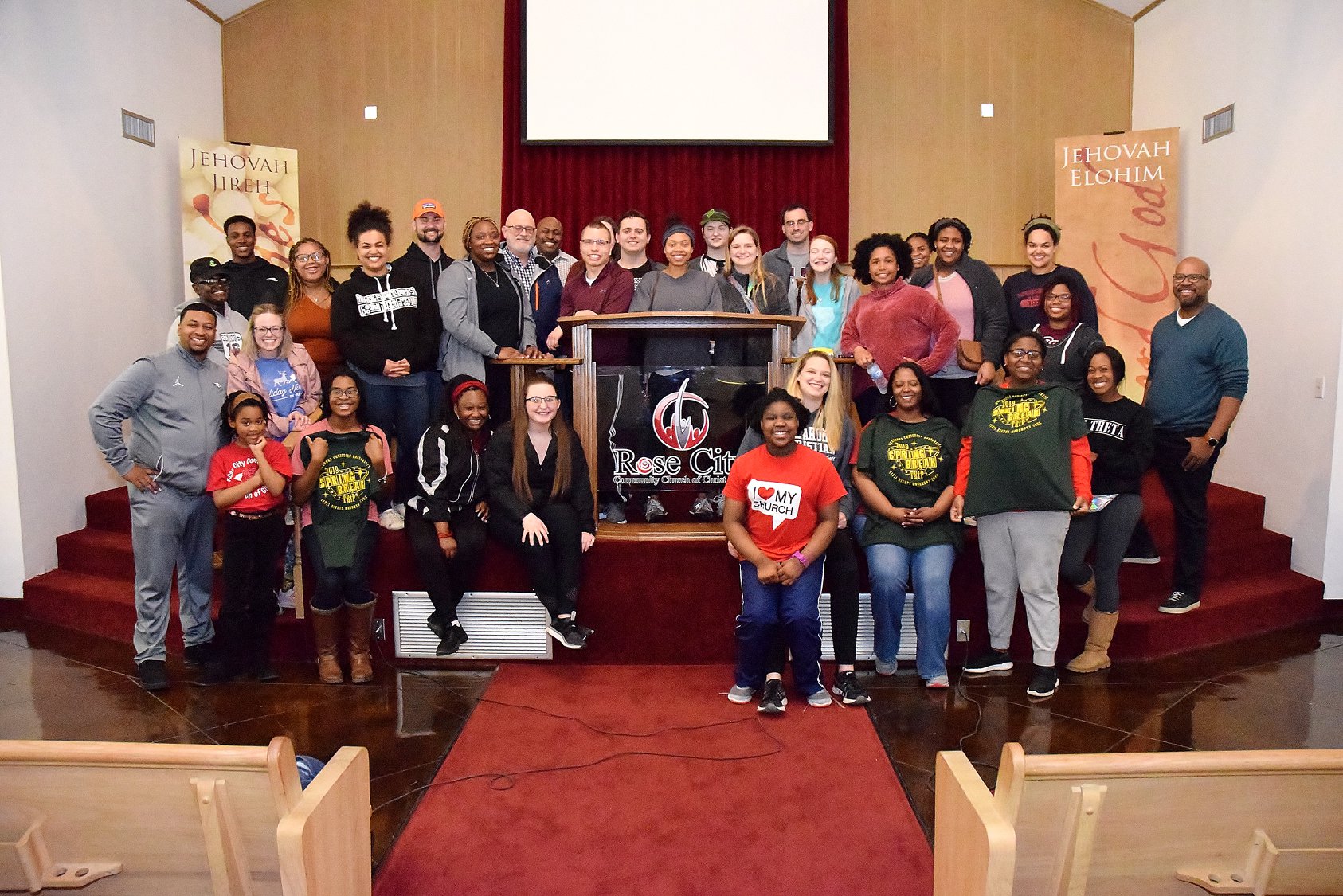Listening to smooth R&B music, on the long drive from Montgomery, AL, to Edmond, OK, I could not help but ask myself one essential question— “What do I do now?”
Sometime last semester, in the midst of my own racial identity crisis, I made an impulsive decision to sign up for Oklahoma Christian University’s civil rights spring break tour as a desperate attempt to understand my place in society as a black woman. But last week, I quickly learned this quest will be a lifelong journey rather than the one-week bucket list trip I had originally envisioned.
We visited four states across the south, painting the picture of African American history from slavery to the “War between the States,” as Alabama historical markers inaccurately label the Civil War, all the way through the civil rights movement in the 60s. We traced the same terror which persists for today’s black community in a single week.
We followed the footsteps of visionaries like Martin Luther King and walked through the homes of icons like Medgar Evers and Booker T. Washington. We learned an overwhelming amount of information from the countless civil rights museums and memorials we visited. There are so many stories I had never heard of and so many stories which will likely never reach fruition.
Well over four thousand souls were lynched in America for crimes such as looking at a white woman or simply walking down the street. These lynchings continued throughout the 20th century while terrorism by police officers and the rest of the southern community was ignored by American society.
In the 60s, college students led scores of non-violent protests. They held sit-ins at restaurants, boycotted stores and did ultimately whatever they could to end the era of blatant oppression in America. In the summer of 1964, a season known as “freedom summer,” black and white students risked their lives in an effort to allow black people to register to vote.
I watched a video about the historic summer in Mississippi’s civil rights Museum where one person said “some white people were going to have to die” for the country to recognize any of the violence occurring in the south.
These events did not take place long ago, and in the grand scheme of history, black Americans have been enslaved longer than they have been free. White supremacy thrives in many parts of this country, and black people still have a plethora of legitimate reasons to feel marginalized and oftentimes endangered.
I could write novels about everything I learned on this trip which students are not taught in schools. This is why history is so important. In reality, many people on our campus remain oblivious to the racial sins of our past and refuse to accept the university’s attempts to rectify these sins in the present.
While I saw scenes on this trip which will no doubt change the rest of my life, the most striking and fulfilling component of the entire week was the people I met and the discussions I had. On the bus and in our spare time, we began to talk about race at Oklahoma Christian.
I had become numb to the microaggressions which happen on our campus multiple times a day. One of the worst parts about 21st-century racism is when people try and convince minorities that life in America has never been better and that racism in and of itself is over.
This idea is so far from the truth. Racism takes place in different forms today.
A video played in chapel last fall where minority students mentioned a few of the unfortunate racial experiences they had last semester. While many students were shocked at the stories in the video, it barely scratched the surface of what it is like to be a minority at Oklahoma Christian.
This is not a solely Oklahoma Christian problem, but rather an American problem. This university has done a lot, especially this semester, to promote widespread discussions on racial relations. But no matter what the administration does, a university is defined by its student body.
So, what do we do now?
Start by listening with the direct intention of understanding others. If you see something wrong, do something about it. If someone says something wrong, confront them about it. Racism will not end instantly, but maybe our generation can speed up the process.











Be First to Comment